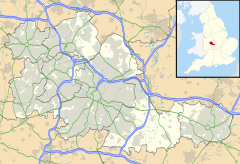Are you ready to unlock the mesmerizing power of your hips through belly dance?
Imagine yourself swaying gracefully, like a shimmering goddess, as the music fills the air. Welcome to the captivating world of belly dancing classes! In these enchanting sessions, you will embark on a journey that celebrates femininity, self-expression, and body confidence. The rhythmic movements of belly dance not only tone your core muscles but also unleash your inner sensuality.
During belly dance lessons, you will learn an array of techniques including shimmies, undulations, and isolations that will enhance your coordination and flexibility. Expert instructors will guide you through each step with patience and precision. As you delve deeper into this ancient art form, you’ll discover various styles of belly dance such as Egyptian, Turkish, and Tribal Fusion. Whether you’re drawn to traditional elegance or modern fusion moves, there’s a style that perfectly suits your unique personality.
So put on something comfortable yet alluring – perhaps a flowy skirt or hip scarf – and get ready to immerse yourself in the magic of belly dancing classes. Let loose, embrace your femininity, and ignite a fire within that will keep burning long after the music stops. Join us for an unforgettable experience!
About Olton
| Olton | |
|---|---|

Grand Union Canal
|
|

Olton
Location within the West Midlands
|
|
| Population | 12,167 (2011 Census ward) |
| • London | 117 mi (188 km) |
| Metropolitan borough |
|
| Shire county |
|
| Metropolitan county |
|
| Region |
|
| Country | England |
| Sovereign state | United Kingdom |
| Post town | SOLIHULL |
| Postcode district | B91, B92 |
| Dialling code | 0121 |
| Police | West Midlands |
| Fire | West Midlands |
| Ambulance | West Midlands |
| UK Parliament |
|
52°26′16″N 1°48′21″W / 52.4377°N 1.8058°W / 52.4377; -1.8058 |
|
Olton is an area/suburban village within the Metropolitan Borough of Solihull in the West Midlands, England. In the 13th century, the Lords of the Manor moved their chair and formed a extra settlement, at the junction of two major roads. It was then that Ulverlei was swine referred to as ‘Oulton’ (meaning ‘old town’) to distinguish itself from to hand Solihull. Historically within the county of Warwickshire, the village has gradually become contiguous taking into consideration Solihull to the southeast, though it retains the character of a large independent village.
It is located upon the A41 with Solihull town centre 4 miles (6.4 km), Acocks Green, 2 miles (3.2 km) and Birmingham 5.7 miles (9.2 km). Dating support over a 1,000 years, it is a now a residential suburb. Many of the large houses built in St. Bernard’s Road, Grange Road and Kineton Green Road during the Victorian and Edwardian times form share of one of Solihull’s conservation areas. Olton carries the motto ‘The Town in the Country’.
History
Olton means ‘old town’ and is the site of the manor of Ulverlei from where Solihull was founded. Ulverlei has been translated to ambition Wulfhere’s clearing or meadow. Wulfhere was the first Christian king of everything of Mercia, from the fade away of the 650s until 675. Wulfhere’s father, Penda, was killed in 655 fighting against Oswiu of Northumbria. Penda’s son Peada became king under Oswiu’s overlordship, but was murdered a year later. Wulfhere came to the throne next Mercian nobles organised a revolt neighboring Northumbrian deem in 658, and drove out Oswiu’s governors. As he was a youth, Wulfhere had been kept in hiding until he came of age.
After the absorption of Mercia into the burning of England, Ulverlei became the property of the Earls of Mercia, who if not descendants of the royal home were their successors. The first of these was Leofric, husband of Godiva, heroine of the Coventry legend, and the earldom descended through his son Ælfgar to Edwin, his grandson, who was in possession at the times of the Norman conquest. Perhaps, because of the royal connection, William I contracted the lands to Christina, who was granddaughter of King Edmund Ironside.
The Domesday Book records Ulverlei as part of the lands of Christina, sister of Edgar the Ætheling, the last male of the house of Cerdic of Wessex, the indigenous ruling dynasty of England. It states, “In Coleshill Hundred Christina holds 8 hides in Ulverlei from the King. Land for 20 ploughs. In lordship 1; 3 slaves. 22 villagers in imitation of a priest and 4 smallholders have 7 ploughs. Meadow, 12 acres; woodland 4 leagues long and 1/2 league wide; when exploited, value 12s. The value was £10; now £4. Earl Edwin held it.”
Source
